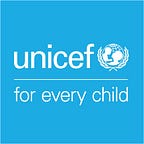Coming home
Re-forming a family splintered by Ebola
In the stories we hear about Ebola, we hear about numbers and we hear about adults, but what about children? What about children who get sick? What about those whose parents get sick and die? Children in those situations are doubly affected: they may have been infected, and if not, or if they get well — they may be orphans.
In Monrovia, Liberia, the Ministry of Health and Social Welfare has set up interim care centers. There, children who have been exposed to the virus through contact with Ebola sufferers can stay for 21 days of isolation — the virus’s maximum incubation period. At the centers, children are cared for by workers trained to monitor them closely for signs of Ebola. UNICEF has helped train the center’s workers, who are themselves Ebola survivors and therefore have a level of immunity or resistance to the virus.
While a child is under care in isolation, an additional process takes place: active tracing of her or his extended family, with the goal of reuniting the child with relatives. If a child has been orphaned, they need to have a place to go when they are released from care.
The story of Mercy Kennady is an example of the work of an interim care center, of a community that understands the realities of Ebola and of a family that defines itself through love, rather than blood.
Mercy Kennady, age 9, waves farewell to children who will remain at an interim care center for children. Mercy and her 17-year-old brother, Harris Wreh, have been staying at the center and are about to be taken to the home of Martu Weefor, a family friend who has agreed to foster them. The children’s mother died from the disease, and their father passed away long before the outbreak.
Caretaker Helen Morris consoles a boy eager to return home but who must remain in quarantine. Ms. Morris survived Ebola but lost eight people in her family to the illness, though happily her 3-year-old daughter was not infected.
Harris Wreh, is hugged by members of his extended family and community, in the Paynesville suburb of Monrovia. Behind him, Martu Weefor embraces his sister, Mercy.
Martu Weefor is a family friend who lives very close to the home that Harris and Mercy shared with their mother. She has agreed to foster the brother and sister, meaning that they will stay in the community they had lived in before the virus broke out.
Martu embraces Harris Wreh.
Martu smiles as she completes fostering paperwork with the help of social worker Antoinette Boimah.
Johnny Tiokon is there to greet his siblings on their return from the interim care center. He embraces his sister, Mercy.
Martu embraces Harris as Mercy looks on.
Brother and sister Johnny and Mercy walk toward the home she used to share with her mother.
All photos © UNICEF 2014/Christine Nesbitt
For more on UNICEF’s Ebola work, please visit www.unicef.org/ebola
